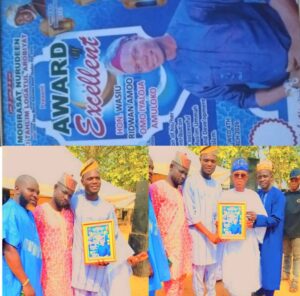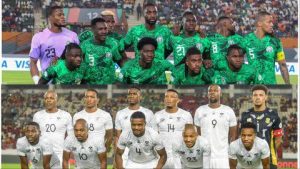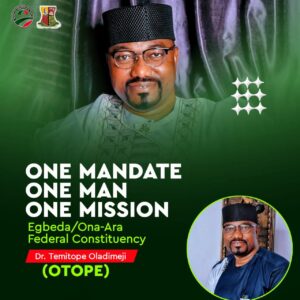Nigeria’s first military coup was not necessarily an Igbo coup, but logic has made it so. By focusing on the ethnic identities of the key plotters and the northern leaders who were killed, a narrative was logically constructed that has fueled ethnic tensions for decades. This logic, however, ignored the political complexities, the motivations behind the coup, and the fact that some Igbo leaders were also targeted.

Fast forward to 2023: Despite Peter Obi winning Lagos and receiving significant support from prominent Yoruba figures, including the Afenifere socio-political group, many Igbo still see the Yoruba as enemies and blame the entire ethnic group for the excesses of a few thugs in Lagos. This narrative persists despite the evidence that the Yoruba were not monolithic in their response. A large segment of the Yoruba population backed Obi.
Yoruba leaders could have done better in 2023, but so could have Aguiyi Ironsi in 1966. His decision to accept the position of Head of State despite the killings of several northern leaders cemented the perception of an ethnic agenda. This decision, although logical within the context of military hierarchy, contributed to a narrative that turned perception into reality and ushered in the civil war.
The northern leaders who concluded that it was an Igbo coup were not unreasonable. From their perspective, the pattern of the killings and the rise of an Igbo head of state appeared to validate their fears of ethnic domination. If the stance of Afenifere and many other prominent Yoruba personalities in the Obi camp could not neutralize the excesses of the known miscreants dubbed ‘Yoruba ronu’ (who often vocalize extreme ethnic views), what would have happened if the Igbo had been at the receiving end of that coup? The response would likely have been far more brutal and aggressive. The Igbo have already shown how quickly they could tag an entire ethnic group as “betrayers” based on the perceived actions of one or a few figures. Their reaction to Awolowo, a single Yoruba politician, is a case in point.
READ ALSO: Alaafin’s coronation in jeopardy over unknown whereabouts of Osun monarch
In fact, despite the fact that some Yoruba soldiers fought on the Biafran side, the Igbo continue to call the Yoruba “betrayers” to this day. This deeply entrenched view demonstrates how hard it is to separate emotion from logic when ethnic identities are at stake. Wole Soyinka is another powerful example of this paradox. Soyinka stood in solidarity with Biafra and risked his life doing so. He was vocal in his support for the Biafran cause, even at the expense of his own safety and personal freedom, but this has not lessened the emotional weight of perceived betrayal.

This perception is complicated when we look at the situation in Rivers State. There, Governor Nyesom Wike used state resources to suppress Obi’s supporters, much like the attacks seen in Lagos. Yet, the actions in Rivers have not been widely regarded as “betrayal.” Instead, they have been seen as part of the political maneuvering within the region. Wike, a prominent leader in the south-south, used force to protect his own political interests and maintain power within the PDP. His suppression of Obi’s supporters was not interpreted as an ethnic betrayal, but as a strategic move, a typical political tactic used to control the narrative and ensure that one’s interests are preserved.
ALSO READ: Why Nigerian govt reintroduces history into education curriculum
This discrepancy in perception further demonstrates how the logic of Nigerian politics is inherently tribal. Wike’s suppression in Rivers is seen through the lens of political strategy, while similar actions in Lagos are amplified by ethnic anger, exacerbated by historical grievances.

READ ALSO: Sharia law best for Southwest Muslims – JAMB registrar Prof. Is-haq Oloyede
But let’s be real—are the Igbo truly angry at the Yoruba? Are the Yoruba really angry at the Igbo? I think we are all dancing compulsively to a tune played by politicians in 2023. Unfortunately, those who started the music don’t even know how to end it.
Can we blame an Igbo man who was attacked by Yoruba-speaking thugs in Lagos for being upset? He was threatened, prevented from voting and treated unfairly. It was a painful, real experience. And the anger that followed from many Igbo, attacking Yoruba women and labeling all things Yoruba as negative, was it misplaced? It was a reaction to a traumatic experience.
But then, when Yoruba people start responding angrily, retorting the insults, are they wrong? No. Their anger too is valid. But this anger feeds into a vicious cycle. All of this, all of this anger, this tribal back-and-forth, was just a game to the politicians who instigated it. For them, it wasn’t about ethnicity; it was a strategy to win elections, to secure power. They used us, played on our emotions, manipulated our identities, and didn’t even care about the consequences.
Now, those who played the game have moved on. They’re onto their next steps. But we’re still dancing. We are still reacting to the fallout of a political game, and we are letting it tear us apart.
Do you really think your Igbo friends, colleagues, or acquaintances now truly believe you hate them just because you’re Yoruba? Do you, a Yoruba, honestly dislike them now? I don’t think so. But these emotions, these reactions, they are all part of the larger political play we’ve been caught in. We are all victims here. Victims of a game we didn’t start but have had to live through.
[1966-1999]: History Of Military Coups In Nigeria
We need to realize that, just like the Igbo reacting to their election experiences in Lagos, the Yoruba are reacting to those reactions, and all of us are caught in the middle. We must stop dancing to the tune played by politicians and begin to question why we are still being played.
We must stop the cycle. It’s time to rise above this and focus on our shared future, beyond the politics that sought to divide us.
Source: Damilola Ayeni: The former editor of the Foundation for Investigative Journalism (FIJ).








